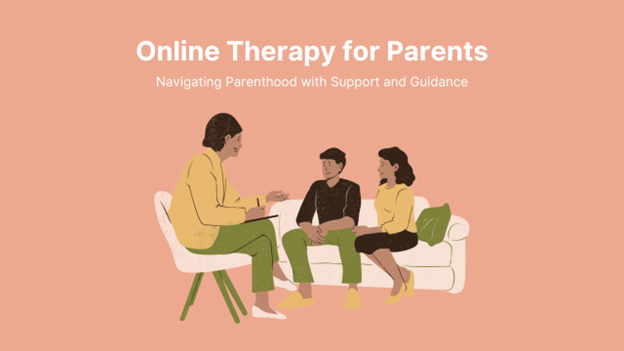In the realm of superstitions and folklore, few concepts capture the imagination quite like “jinx bl.” It’s a phenomenon that has intrigued and perplexed people across cultures and generations. But what exactly is jinx bl? At its core, jinx bl embodies the belief in a curse or hex that brings misfortune or bad luck upon individuals or situations. This article delves deep into the origins, psychological underpinnings, real-life examples, and controversies surrounding jinx bl, aiming to shed light on this fascinating yet enigmatic aspect of human belief.
Understanding Jinx Bl
Jinx bl, also known as jinxing or being jinxed, is deeply rooted in cultural traditions and folklore. While its manifestations may vary from one community to another, the essence remains consistent—a sense of foreboding or impending disaster associated with certain actions, objects, or occurrences. This belief in the power of jinx bl often leads individuals to adopt superstitious behaviors or rituals aimed at warding off bad luck.
Historically, jinx bl has been intertwined with various mythologies and religious beliefs. From ancient civilizations to modern-day societies, tales of curses and hexes abound, reflecting humanity’s enduring fascination with the supernatural and the inexplicable. Whether it’s the “evil eye” in Mediterranean cultures or the “curse of the pharaohs” in ancient Egypt, jinx bl manifests in diverse forms, yet shares a common thread of fear and superstition.
Origins of Jinx Bl
The origins of jinx bl can be traced back to ancient times, where beliefs in curses and malevolent spirits held significant sway over human behavior. In many cultures, the concept of jinx bl arose as a means of explaining inexplicable misfortunes or setbacks. For example, in ancient Greece, it was believed that jealousy or envy could invoke the wrath of the gods, leading to calamity and ruin for the afflicted individual.
Over time, these beliefs evolved and adapted to changing social and cultural contexts. With the spread of Christianity, notions of divine retribution and sin became intertwined with superstitions surrounding jinx bl. The Middle Ages saw a proliferation of witchcraft trials and persecution, fueled by fears of malevolent sorcery and curses. Even in the modern era, remnants of these beliefs persist, albeit in more subtle and nuanced forms.
Psychological Perspectives
From a psychological standpoint, belief in jinx bl can be attributed to various cognitive biases and heuristics that influence human decision-making. The concept of “illusory correlation,” for instance, refers to the tendency to perceive a relationship between two unrelated events based on coincidental occurrences. When faced with adversity or failure, individuals may attribute their misfortune to a perceived jinx bl, rather than rational or logical explanations.
Furthermore, the human brain is wired to seek patterns and meaning in the chaos of the world, leading to the formation of superstitions and rituals as a means of exerting control over unpredictable circumstances. Through reinforcement and social validation, these beliefs can become deeply ingrained and resistant to rational scrutiny, perpetuating the cycle of jinx bl.
Real-life Examples
Instances of jinx bl abound in popular culture, serving as fodder for myths, legends, and urban legends. From the infamous “27 Club,” where numerous musicians died at the age of 27, to the purported curse of the “Hope Diamond,” which allegedly brings tragedy to its owners, the allure of jinx bl is undeniable. Even in everyday life, people may avoid certain actions or objects out of fear of invoking bad luck, illustrating the pervasive influence of superstition.
In sports, jinx bl often takes on a heightened significance, with athletes and teams adopting elaborate rituals and superstitions in pursuit of success. Whether it’s wearing lucky socks or performing pre-game rituals, these practices reflect a belief in the power of jinx bl to influence outcomes. Despite the lack of empirical evidence, the psychological impact of superstitions on performance cannot be dismissed lightly.
Jinx Bl in Relationships
The influence of jinx bl extends beyond individual endeavors to interpersonal relationships, where it can shape perceptions and behaviors in subtle ways. In romantic contexts, for example, couples may avoid certain dates or activities out of fear of tempting fate or inviting misfortune. This belief in jinx bl can create tension and conflict within relationships, as partners navigate the delicate balance between superstition and rationality.
Moreover, jinx bl can impact social interactions and group dynamics, influencing decisions and behaviors within communities. Whether it’s the fear of “jinxing” a pregnancy or the superstition surrounding Friday the 13th, these beliefs can shape collective attitudes and behaviors, reinforcing the power of jinx bl in shaping human experiences.
Conclusion
In conclusion, jinx bl represents a complex interplay of cultural traditions, psychological phenomena, and societal influences. While its origins may lie in ancient beliefs and superstitions, its impact continues to reverberate in modern society, shaping perceptions and behaviors in profound ways. By understanding the underlying mechanisms and cultural contexts of jinx bl, we can gain insight into the human condition and the enduring power of belief in the face of uncertainty.
FAQs (Frequently Asked Questions)
What is jinx bl?
Jinx bl refers to the belief in a curse or hex that brings misfortune or bad luck upon individuals or situations.
Where does the term “jinx bl” originate from?
The origins of the term are unclear, but it has been used to describe superstitions and beliefs in curses across various cultures.
How does jinx bl impact sports performance?
While there is no scientific evidence to support its efficacy, belief in jinx bl can affect athletes’ confidence and mindset, potentially influencing their performance.
Are there any scientific explanations for jinx bl?
Psychological theories suggest that belief in jinx bl may stem from cognitive biases and heuristics that influence human decision-making.
How can I overcome belief in jinx bl?
Overcoming belief in jinx bl requires critical thinking, rational analysis, and a willingness to challenge ingrained superstitions.
Is jinx bl culturally specific?
While the manifestations of jinx bl may vary across cultures, the underlying belief in curses and bad luck is a common thread in human societies.
Can jinx bl affect mental health?
Belief in jinx bl can contribute to anxiety, stress, and other mental health issues, particularly when it leads to obsessive or irrational behaviors.
Are there any benefits to believing in jinx bl?
While belief in jinx bl may provide a sense of control or comfort for some individuals, it can also lead to undue stress and anxiety.
What are some common superstitions associated with jinx bl?
Common superstitions include avoiding certain actions or objects, such as walking under ladders or breaking mirrors, out of fear of invoking bad luck.
How can I help someone struggling with belief in jinx bl?
Encouraging open dialogue, providing reassurance, and offering support can help individuals challenge their beliefs and overcome superstitions.



